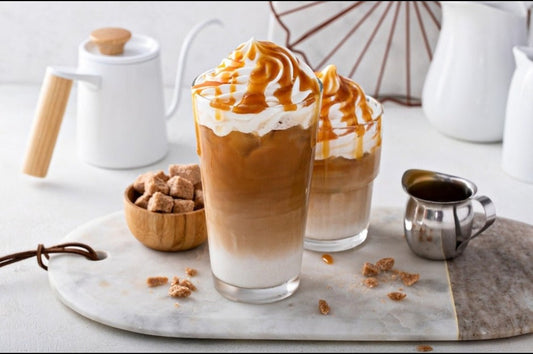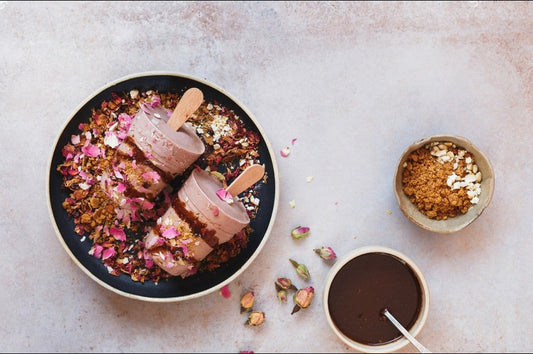
Are You Really Hydrating? How to Ensure Your Body Is Using the Water You’re Drinking
Water is often hailed as the magic elixir for health, and for good reason. Staying hydrated is essential for everything from regulating body temperature to keeping your skin glowing and ensuring your organs function properly. Yet, many of us may not be hydrating as effectively as we think we are. Drinking water is crucial, but are you making sure that your body is using the water you consume in the most beneficial way possible?
In this blog, we’ll explore what it really means to hydrate, the common pitfalls that could be sabotaging your efforts, and how to make sure you’re giving your body the hydration it truly needs.
The Importance of Hydration
Hydration is the cornerstone of good health. Every cell, tissue, and organ in your body requires water to function properly. Beyond the obvious benefits like keeping your body cool and flushing out waste, proper hydration can give you clear, glowing skin, boost energy levels, and improve the efficiency of your workouts. In fact, if you’re swapping out sugary drinks like soda for water, you may even see some weight loss.
But despite our awareness of the importance of drinking enough water, many of us fall short of keeping our bodies fully hydrated. The key lies not just in the quantity of water you consume but in how well your body retains and uses that water.
Understanding Hydration: Quantity vs. Quality
We’re often told to drink eight glasses of water a day, but hydration isn't just about hitting a certain number. Quality matters, too. The body uses water more efficiently when certain conditions are met, and there are numerous factors that can affect how well you’re actually hydrating.
For instance, relying only on thirst as a signal can be misleading. Thirst is often a sign that your body is already dehydrated, meaning by the time you feel it, you might need more than just a sip of water to rehydrate.
How to Hydrate Properly
To make sure your hydration efforts are paying off, here are a few things to consider:
1. Drink Water Regularly Throughout the Day
One of the simplest ways to stay hydrated is to drink water consistently, rather than waiting until you're thirsty. Aim to sip fluids regularly throughout the day, especially after waking up, when your body is most dehydrated. Drinking small amounts of water frequently is more effective than chugging large amounts sporadically.
2. Avoid Dehydrating Beverages
It’s important to understand that not all fluids are created equal. Caffeinated drinks like coffee, soda, and energy drinks may quench your thirst momentarily, but caffeine is a diuretic. This means it actually makes your body lose water, negating some of the hydration benefits of the liquid itself. Try to limit these drinks and replace them with water or herbal teas.
3. Up Your Water Intake During Exercise and Hot Weather
When you exercise or spend time in hot environments, your body loses fluids rapidly through sweat. During these times, your hydration needs increase. Make sure to replenish what you’re losing by drinking extra water before, during, and after your workout or outdoor activity.
A good rule of thumb is to drink water before you feel thirsty and continue drinking throughout your activity to prevent dehydration from creeping up on you.
Electrolytes: The Secret to Optimal Hydration
Hydration isn’t just about water — it’s also about electrolytes. Electrolytes are essential minerals, including sodium, potassium, calcium, and magnesium, that help balance the water levels in your body. When you sweat, you lose both water and electrolytes, which is why simply drinking plain water may not be enough during periods of intense physical activity or hot weather.
To keep your body in balance, you need to replenish both fluids and electrolytes. Fortunately, there are several ways to do this:
- Electrolyte powders or drops: These supplements can be added to your water to help restore electrolyte levels quickly.
- Coconut water: Naturally rich in electrolytes like potassium, coconut water is a great natural hydration option.
- Natural electrolyte beverages: Look for drinks made with clean ingredients that skip the artificial dyes, sugars, and preservatives commonly found in sports drinks.
Flavor Boosters: Keeping Hydration Fun
Drinking plain water all day can sometimes feel like a chore. The good news is that you can get creative with how you hydrate by adding flavor to your water. Here are a few ideas:
- Fruit-infused water: Try adding berries, citrus slices, or even cucumber to your water. Let it sit in the fridge for 30 minutes to 2 hours, and enjoy a refreshing, naturally flavored drink.
- Citrus juice: A squeeze of lemon, lime, or orange juice adds a refreshing twist and provides a burst of vitamin C.
- Natural sweeteners: If you need a little sweetness to encourage yourself to drink more, add a small amount of natural sweeteners like monk fruit or stevia.
- Sparkling water: For a bubbly alternative, try sparkling mineral water. Just be sure to avoid varieties with added sugars or artificial ingredients.
Experiment with these different options to see what keeps you sipping all day long. The more enjoyable your hydration routine is, the easier it will be to stick with it.
Eating Your Water
In addition to drinking water, you can boost your hydration by eating water-rich foods. Many fruits and vegetables are packed with water and can contribute to your daily hydration goals. Foods like watermelon, tomatoes, cucumbers, and strawberries are over 90% water by weight. Incorporating these into your meals and snacks is a tasty way to help stay hydrated.
Salads with leafy greens, soups, and smoothies are other delicious options that not only hydrate but also provide essential nutrients.
Watch for Signs of Proper Hydration
Once you start paying attention to your hydration habits, it’s important to observe how your body responds. Good hydration can result in clearer, dewier skin, increased energy levels, better focus, and more effective workouts. You might also notice that you're less prone to headaches and feel more mentally sharp throughout the day.
Keep track of your energy, mood, and physical well-being to gauge whether you’re staying properly hydrated. As you develop healthy hydration habits, you’ll likely notice positive changes in how you feel both mentally and physically.
Proper hydration is about more than just drinking water; it’s about ensuring that your body is effectively using the water you consume. By staying mindful of when and how you hydrate, avoiding dehydrating drinks, replenishing electrolytes, and eating water-rich foods, you can help your body stay balanced and feel its best.
So, start experimenting with different ways to stay hydrated — whether it’s trying a new flavor enhancer or eating more fruits and veggies. When you make hydration a priority, you’re setting yourself up for improved health, increased energy, and glowing skin. Make it a habit, and watch your body thrive!
Continue reading
View all-

The Twin Temptation: Bakers Frappe Powder for Your Cafe-at-Home Moments
Are you tired of spending a fortune at coffee shops to get that perfect frappe? What if you could recreate that creamy, smooth, and delicious experience right in your own...
The Twin Temptation: Bakers Frappe Powder for Your Cafe-at-Home Moments
Are you tired of spending a fortune at coffee shops to get that perfect frappe? What if you could recreate that creamy, smooth, and delicious experience right in your own...
-

Spice Up Your Plate: The Golden Touch of Puress Cold Pressed Mustard Oil!
Puress Cold Pressed Mustard Oil can transform a dish with its unique flavor profile. Try it now!
Spice Up Your Plate: The Golden Touch of Puress Cold Pressed Mustard Oil!
Puress Cold Pressed Mustard Oil can transform a dish with its unique flavor profile. Try it now!
-





